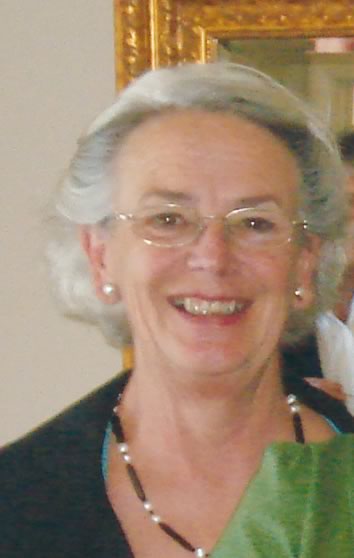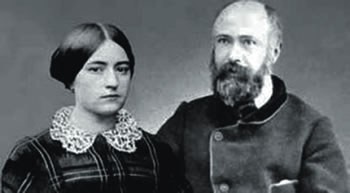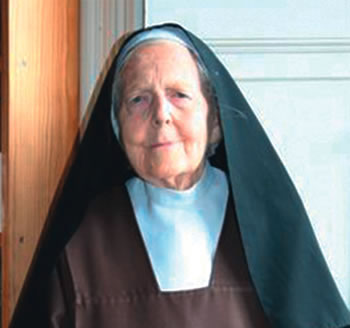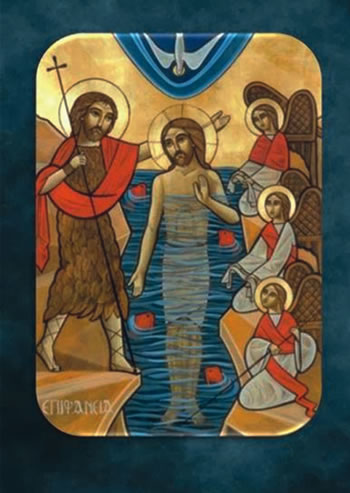Married, Saintly Life
A couple of things have come to my attention lately which I think are connected. The first is the forthcoming canonisation of the parents of St. Therese of Lisieux, the first married couple to receive this official Church blessing. The other is a statement from our Catholic Bishops which says that our schools are producing cultural Catholics rather than followers of Jesus Christ. My husband cannot see any connection with these two bits of current Catholic life. Long live the difference!
Some form of cultural Catholicism is probably how many of us start our faith journeys. In the past we have been encouraged to redeem this sort of Catholicism. It can stop us from knowing God and can interfere with the Church’s mission to continue the work of redemption started by Jesus Christ. In cultural Catholicism the spiritual desire to seek God, to follow Jesus Christ to find God, seems to be absent. This absence tends to make the Gospel seem like a moral code for living and make Jesus Christ seem like an historic moral teacher. It tends also to undermine the living power of Jesus Christ in the sacraments.
Even a cursory reading of the Gospel will reveal that Jesus Christ used the power of his Personhood to redeem the worldly power that had turned Judaism into a cultural exercise. That worldly power is still around today lurking in marriages, homes, parishes and schools. Post-Vatican II children perhaps know little about confronting this devilish power inside themselves. Perhaps like so many they do not understand the power of personhood or feel any compunction to use it as Jesus Christ used his in the world. Children need to learn about dealing with sin and being part of the continuing work of redemption from adults who are doing the same thing, but more about that later. Firstly I want to have a simple look at the sacrament of marriage and spousal life to see if it has room in it for individuals to grow into personhood.
The canonisation of Louis and Zelie Martin comes at a time when the sacrament of marriage is caught up in a culture of individualism and the absolute freedom of the individual to choose how to live. Into this atmosphere the Church places the canonisation of a married couple. This action reminds married couples that they are called by God, to live saintly lives. There is no argument about this but it does not sit easily in today’s world in which many do not want to be called by any sort of authority to do anything.
A saintly Catholic life is one in which spouses accept that the wisdom of Church teaching about saintly life echoes the Wisdom of God. Spouses accept that saintly life will lead them beyond cultural Catholicism into the Personhood of Jesus Christ who brings peace and unity to marriages. In Catholic marriages this saintly life is going on behind the face of the sacrament so to speak. It looks like old-fashioned conversion life. Updating that term, calling it baptismal-converting life, gives everyone a sense of something more alive and gradual going on in the spiritual lives of Catholic spouses. This is a graced life. It is the only life that can hold all aspects of sacramental marriage and family life together so that each person can be happy and be who they are before God without compromising the unity of the whole.
Marriage is the sacrament which today is most suited to lead the whole Church away from personal selfishness and division back into saintly life where such things are redeemed. One has only to feel the power of cultural Catholicism breaking down the local Church to know that some power other than the power of Jesus Christ’s Personhood is at work in the Church. Surely a spousal led, spiritual movement in the life of the local Church is worthwhile, (no meetings please.) Surely moving towards personal selflessness which is holy and brings lasting peace and unity to persons who want to get on together but find their differences often divide them, is what is needed in the universal Church.
So, how saintly and holy do spouses generally need to be for their marriages to serve the Church and wider society in this way? What heights of holiness can each spouse hope to reach without compromising marriage vows? I suspect that given the present complex situation around marriage we have all erred in thinking that individual holiness and spiritual life is still the prerogative of celibate vocations. The canonisation of the Martins brings closure to that thinking.
In the interests of holiness and universal, saintly life, Ruth Burrows, an English Carmelite nun, wrote a book titled Guidelines for Mystical Prayer. After reading it many lay people wrote to her saying the book was too specialised and asked could she write a book more suited to lay life. One man wrote saying he was married and the way to follow Jesus Christ set out in her book was not for him. He said he was already settled in his life’s role—he was a family man—and there was no possibility of changing it.
Ruth Burrows insists that the way of following Jesus Christ she outlines in her book, which is the saintly way, is for lay and religious alike. She says there is no distinction between them when it comes to spiritual growth. She did go on to write another book titled To Believe in Jesus. In the preface, she comments on the spiritual growth and concern of lay people who want to be holy but struggle with just how holy they can actually be in lay pastoral life, particularly married life. With Gospel clarity, she cuts through a seeming complexity when she says, “It is the same for each and all.”
There is some work to be done by theologians and philosophers about the fact that married persons seek God in common but find God as individuals. This journey of discovery, which starts out as a joint journey but may gradually become more individual, will antagonise a marriage contract, but it is not antagonistic to the sacrament. Ruth Burrows thought the married man’s comments were an excuse not to deepen his discipleship, utterly trust in God and move out of his comfort zone.
It is uncomfortable trying to be holy within the sacrament of marriage but not to do so brings greater sorrow to the local Church. Often one spouse will feel that the other is hindering his or her individual spiritual growth. So often I have found that the opposite is true. It is so often a spouse who, in telling the other a few home truths, brings to light the Truth about life which a person intent on finding God through following Jesus Christ can easily lose sight of. I believe this is an in-house form of spiritual direction which is proper to the sacrament of marriage.
God does not ask a spouse to leave a marriage in order to be individually holy any more than the Holy Spirit prompts a person to seek another spouse in order to be happy. God, through his Holy Spirit dwelling in the heart of a spouse, may prompt a person to move out of his or her spiritual comfort zone. That risky, spiritual movement may test marriage vows like any sort of difference tests marriage vows.
A spouse who is truly following Jesus Christ will remain within the sacrament whilst this gradual, spiritual growth is going on. We can utterly trust God in this matter and get on with the business of being holy, experiencing differences and loving them to the point of unity. Tana Umaga said rugby was not Tiddly Winks. Neither is the journey of individual holiness and Gospel selflessness within marriage. It is a bruising and hard fought battle in which the only thing that dies is the ego.
The canonisation of the Martins brings to light the full, homely picture of how Catholic marriage influences the discipleship of children. All these different bits of Catholic life are connected, finding their unity in God. We may love God dearly and live saintly lives for God and still not see this connection. That does not matter a fig. So long as we are all following Jesus Christ, going the same way and doing our very best to serve the Church and the world in the times in which we live, we are living in communion.
Living Discipleship At Home
Our Bishops have said that our Catholic schools are producing cultural Catholics rather than followers of Jesus Christ. This systematic failure probably has its roots in home life. Parents are the first educators, the first evangelisers of children. Bringing children into discipleship is one way marriage and family life serves the Church. It seems an apt, somewhat natural service for which no meetings or ministry are required.
Home life is supposed to tune a child’s sensibilities towards God and teach children about following Jesus Christ. The Martins, recently canonised as a married couple certainly took this responsibility seriously. If we look at the life of their daughter, St. Therese, we will see that she had absolute belief in Jesus Christ, loving him fiercely as a Person, following him with her ‘little way.’ We may struggle to see what this French family has to say to local kiwi Catholic life today but cultural affectations aside I suppose Louis and Zelie Martin lived a basic Catholic sacramental life in which the Personhood of Jesus Christ came alive for their children.
Baptism is the sacrament which introduces a child to Jesus Christ and discipleship. It frees a child for life from the power of Original Sin. It brings a child into a churched, commonly lived saintly life in which the Holy Spirit abides. It requires parents and Godparents to keep a child’s spirit open to God’s life and the work of the Holy Spirit until a child is able to do that for herself.
In St. John’s Gospel Jesus teaches Nicodemus about this latter ongoing aspect of Baptism. He teaches him about being born from above through water and the Spirit. After the Second Vatican Council there was much talk about “life in the Spirit” as the charismatic movement came into being. With the decline of the movement we do not hear so much about it. That is a shame because the charismatic movement served the Church by raising our awareness of living our baptismal vows beyond the day of baptism. That people had to divide themselves off from the big group into a small fellowship group to live this life always seemed odd to me.
The life of the Holy Spirit can and must be lived at home within sacramental family life. In a domestic Catholic environment “life in the Spirit” is not so much a tasteful version of Catholic life that some adults choose to live. It is more the universal life that God the Holy Spirit wants to live in every individual. Keeping a child’s spirit open to God’s life is like keeping a wound open. The child then gradually becomes aware of her soul where the Holy Spirit lives. Moreover she feels that the Holy Spirit is like a person prompting her to live a Godly life.
There is one particular discipleship-action the Holy Spirit loves to be part of in the home. That is the way parents teach their children how to turn away from sin towards the divine love of God made real in his Son Jesus Christ. This simple but often difficult action is what parents know as baptismal-converting life. When this sort of Catholic life graces our homes a child gets the idea that sin, though naughty, has something to do with her soul. Gradually she learns that it is somehow good and is connected to the way people learn to love each other properly.
Though love is at the heart of family discipleship, parents need faith for the rigours of living the call to discipleship and passing it on to children. The Martins had it in spades. Faith needs to be simple, and vertical. A belief in the absolute truths of Catholicism must be firmly held and that includes belief in the one, true Church. Without firm-believing-faith, Jesus can so easily become just an historic person to children.
Faith gives children two things which Catholic parental love in a domestic setting finds difficult: a sense of size and a sense of difference. Children need a growing sense that they are becoming members of more than a family, more than a local Church. They need a sense that God in heaven and Jesus Christ in the Church are somehow different, and somehow these Persons are above the normal run-of-the-mill home life but still connected to it. In other words, they need a sense of transcendence and prayer.
Just as spiritual direction between spouses is proper to marriage, faithful spiritual direction of children is proper to parenthood. Parents must point out God’s life in heaven to their children, lovingly helping them to recognise what sin does to their lives and putting them on the most direct or narrow way to pleasing God and being God’s friend. Yes, parents can question Church teaching and their faith can doubt but these adult things should not be part of infancy discipleship.
Infancy discipleship is not cut out to grow up in the ingrained atmosphere of division that a wide spectrum of Christian beliefs, (all of which appear equal), has brought to local Church life. The more we go on living the complexity these beliefs generate for Catholic adults the fewer children grace Sunday worship. The more the local Church bows to the power of complexity the more it becomes irrelevant to everyday marriage and family life and eventually to discipleship altogether.
If we look at the current complexity around marriage for life we perhaps can feel a hopelessness in the way the Church is going about handling the issue. It is impossible to detect in that way any of the urgency and decisiveness Jesus Christ showed in the Gospel when cutting through matters which threatened his mission. The longer adults allow this situation to go on the more children are missing out on knowing Jesus Christ. Mothers know this, have known it for years, but along with our children we do not have a voice or any official status in the very busy, very complex life of the local Church.
The institutional Church on its own is not so good at keeping children’s spirits open and longing for God. The home is the place where parents simply live the one life all are called to live: the life of human weakness before God which brings the Person of Jesus Christ alive in baptismal-converting life. Christian institutions at various times in history can show the world, through the life of the local Church, that Christian religion does not need any form of human weakness at all it, that it can function more efficiently without it. (A bit like the hospital in Yes Minister that ran very efficiently without patients.)
The Holy Spirit is said to move in mysterious ways. Perhaps none more mysterious than the need the Holy Spirit has to find open-innocence and humility in a child’s wounded heart and to place that little child at the heart of the local Church, gracefully turning the institution back to God so that little ones can be brought into infancy discipleship.





 Entries(RSS)
Entries(RSS)